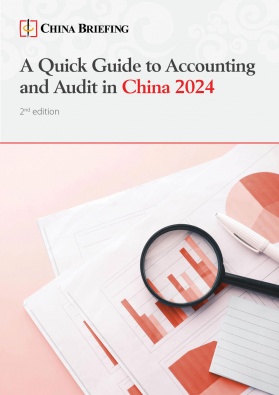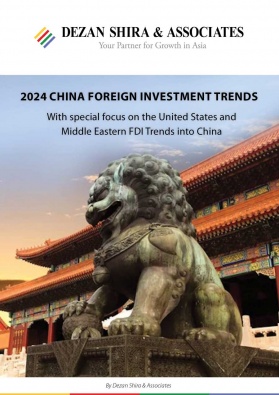New Laws That May Affect Your China Business from January 1, 2024
As of January 1, 2024, a series of new laws and regulations affecting business practices in China will come into effect. It is of utmost importance for foreign investors and enterprises engaged in various sectors, including but not limited to food and beverage, import and export, and financial activities, to closely monitor and adapt to these significant changes.
On January 1, 2024, several new laws and regulations that may affect your business and everyday life came into effect. In this article, we list five such laws, regulations, or national standards, and briefly explain why they matter.
1. Administrative Reconsideration Law of the People’s Republic of China
- Promulgation Authorities: Standing Committee of the National People’s Congress
- Release Date: September 1, 2023
- Effective Date: January 1, 2024
- Doc Number: Presidential Decree No. 9
On September 1, 2023, the Standing Committee of the National People’s Congress, China’s major legislature, released an updated version of the Administrative Reconsideration Law of the People’s Republic of China (hereafter referred to as the “Administrative Reconsideration Law”), set to take effect on January 1, 2024.
The Administrative Reconsideration Law aims to make administrative review the primary method for resolving disputes between private individuals and government agencies, reducing reliance on court litigation. The 2023 revised version essentially aligns with the Administrative Litigation Law, governing similar aspects of litigation against government agencies.
Why does it matter?
The amended Administrative Reconsideration Law significantly expands the scope of cases eligible for administrative review, encompassing issues like:
- Governmental compensation;
- Judgments on work-related injuries; and
- Abuse of administrative power affecting market competition.
Notably, cases previously settled through the Administrative Litigation Law are now reviewable, aligning the two legal frameworks.
The new law introduces compulsory administrative review before court proceedings in specific scenarios, enhancing uniformity across the country. Procedural changes mirror those in administrative litigation, emphasizing oral expression of opinions and introducing a mandatory hearing for disputes of significant importance or complexity. This evolution aligns administrative review procedures more closely with litigation, improving fairness and transparency in dispute resolution.
2. Decision of the Standing Committee of the National People’s Congress on Revising the Civil Procedure Law of the People’s Republic of China
- Promulgation Authorities: Standing Committee of the National People’s Congress
- Release Date: September 1, 2023
- Effective Date: January 1, 2024
- Doc Number: Presidential Decree No. 11
On September 1, 2023, China’s Standing Committee of the NPC announced the Fifth Amendment to the People’s Republic of China Civil Procedure Law (hereinafter, “New CPL”), set to be enacted on January 1, 2024. This significant update marks a pivotal development in China’s legal landscape, introducing key changes to civil procedure regulations.
Notably, the latest amendment predominantly addresses aspects of civil litigation involving foreign entities, aiming to address perceived inequities faced by Chinese companies abroad, especially in the realms of foreign trade and investment. Consequently, this amendment is poised to exert a notable influence on foreign-invested enterprises (FIEs) and multinational companies (MNCs) operating within the country.
For more detailed information on the amendment, refer to this dedicated article.
Why does it matter?
The amendments to China’s CPL significantly extend the jurisdiction of Chinese courts over foreign-related civil cases, presenting potential implications for foreign entities engaged in business with Chinese counterparts. This expansion increases the likelihood of Chinese companies initiating legal proceedings in local courts. For foreign companies navigating this legal landscape, several strategic measures become crucial.
Understanding and leveraging international treaties, such as bilateral investment treaties (BITs) and free trade agreements (FTAs), can provide protective frameworks for investors and companies, offering clear dispute resolution mechanisms, often favoring arbitration in neutral international forums.
Additionally, the importance of robust dispute settlement clauses in contracts with Chinese entities cannot be overstated. Precise delineation of jurisdiction and preferred dispute resolution methods agreed upon in advance can safeguard foreign companies from unexpected legal entanglements in Chinese courts.
3. Measures for the Administration of the Registration of Formula Foods for Special Medical Purposes
- Promulgation Authorities: State Administration for Market Regulation
- Release Date: December 1, 2023
- Effective Date: January 1, 2024
- Doc Number: State Administration for Market Regulation Decree No. 11
On December 1, 2023, China’s State Administration for Market Regulation (SAMR) introduced a significant regulatory update known as the Measures for the Administration of the Registration of Formula Foods for Special Medical Purposes (hereinafter referred to as the “revised measures”).
Why does it matter?
The implementation of the new measures for the administration of formula foods for special medical purposes (FFSMP) is part of a broader strategy to strengthen the nation’s food safety network, reflecting China’s commitment to aligning its standards with international practices. The regulatory updates, especially in areas like infant formula registration and health foods, demonstrate China’s dedication to refining its regulatory landscape.
For stakeholders, including companies and producers, understanding the key changes and implications of these regulations is imperative. Proactive preparation and meticulous compliance are essential, considering the comprehensive nature of the new measures.
4. Import Export Tariffs (2024)
- Promulgation Authorities: Customs Tariff Commission of the State Council
- Release Date: December 20 and December 28, 2023
- Effective Date: January 1, 2024
- Doc Number: Tariff Commission Announcement No. 10 and No.12
China is set to modify import and export tariffs on specific goods in 2024, aiming to bolster high-quality development, advance openness, and expedite the establishment of innovative patterns, as outlined in the Announcement of the State Council Customs Tariff Commission on the 2024 Tariff Adjustment Plan and in the (hereinafter, the “2024 Tariff Adjustment Plan”) and in the Announcement of the State Council Customs Tariff Commission on the Release of the People’s Republic of China Import and Export Tariff.
As disclosed by the Customs Tariff Commission of the State Council (hereinafter, the “Commission”), notable changes are anticipated in the tariffs.
Why does it matter?
As highlighted in our recent article, the changes in China’s import and export tariffs in 2024 are crucial to note as they indicate a deliberate effort to boost the country’s advanced manufacturing sector. By lowering import tariffs, China aims to encourage the use of advanced materials and equipment within its domestic industries.
This move, especially in reducing tariffs on key resources like lithium chloride and fuel cell components, is expected to support the growth of related industries. It also aligns with the government’s focus on clean energy and sustainable technologies, contributing to a more environmentally friendly economic development.
Following China’s economic agenda set during the 2023 Central Economic Work Conference, the country plans to bolster domestic consumption and attract foreign investment in 2024. The adjusted tariff system plays a role in achieving these goals, benefitting both local and foreign businesses. Overall, these tariff changes are part of China’s strategy to secure supply chains, promote technological innovation, and participate actively in global industrial restructuring and free trade networks. Businesses involved in importing and exporting to China need to pay attention to these changes, as they significantly impact their operations and opportunities in China’s growing consumer markets.
About Us
China Briefing is written and produced by Dezan Shira & Associates. The practice assists foreign investors into China and has done so since 1992 through offices in Beijing, Tianjin, Dalian, Qingdao, Shanghai, Hangzhou, Ningbo, Suzhou, Guangzhou, Dongguan, Zhongshan, Shenzhen, and Hong Kong. Please contact the firm for assistance in China at china@dezshira.com.
Dezan Shira & Associates has offices in Vietnam, Indonesia, Singapore, United States, Germany, Italy, India, and Russia, in addition to our trade research facilities along the Belt & Road Initiative. We also have partner firms assisting foreign investors in The Philippines, Malaysia, Thailand, Bangladesh.
- Previous Article China Issues Special Measures to Ease Market Access in the Hengqin Cooperation Zone
- Next Article Incentive Schemes for Companies in Hong Kong








